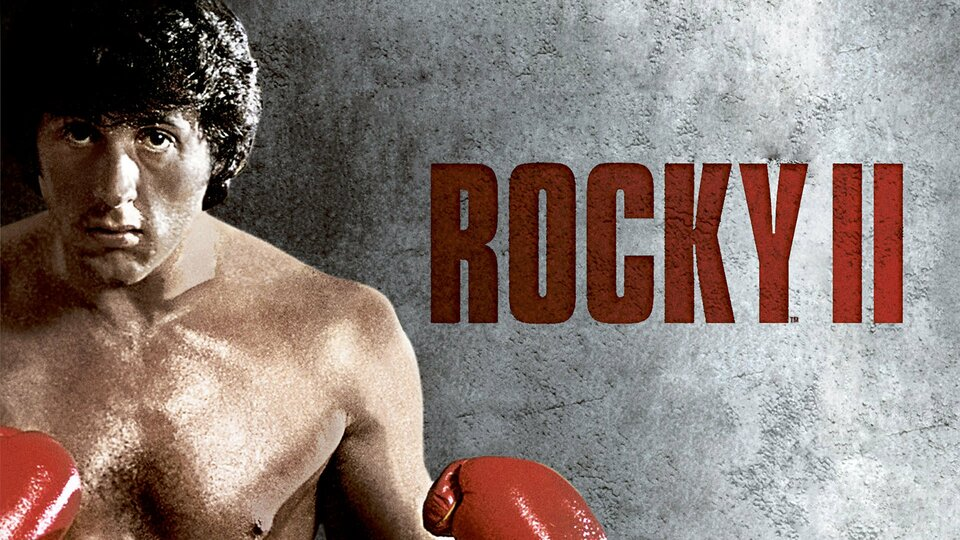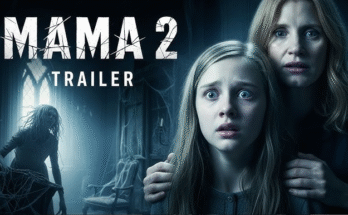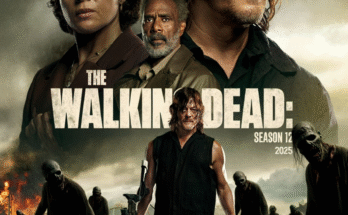Few sequels in cinema history strike with the same emotional power as Rocky II — a film that doesn’t just continue a story, but deepens a legacy. Sylvester Stallone returns not merely as an actor, but as a storyteller at the height of his creative fire, sculpting a tale that’s as much about the soul as it is about strength. This isn’t just a boxing movie. It’s a portrait of resilience — of a man who refuses to let life count him out.

The film begins where the first left off: the hospital lights dim, Apollo Creed stands triumphant, and Rocky Balboa, battered yet defiant, can barely lift his head — but his heart is unbroken. In that fragile aftermath, Stallone finds the poetry of the underdog’s second act. The glory of the fight fades, the cameras leave, and the bruised hero must face something far tougher than an opponent — ordinary life.
As Rocky tries to live quietly with Adrian (Talia Shire), we see a man at odds with his own fame. His newfound recognition brings little peace; he’s still poor, still humble, and still haunted by the question that made him legendary: Did I really prove myself? Stallone’s direction grounds every moment in reality — the cracked sidewalks of Philadelphia, the weary rhythm of factory life, the quiet tenderness of two people who love each other more than they understand how to say.

Apollo Creed (Carl Weathers) returns with fire and fury, determined to silence the whispers that Rocky’s near-victory tarnished his title. Weathers is magnetic — confident yet vulnerable, a man desperate to preserve his legend. His rivalry with Rocky transcends sport; it’s pride versus perseverance, elegance versus endurance. Both men, in truth, are fighting the same enemy: time and self-doubt.
Burgess Meredith’s Mickey is once again the gruff, gravel-voiced conscience of the film. His training montage with Rocky — drenched in sweat, exhaustion, and determination — remains one of cinema’s great rituals of rebirth. The pounding feet, the aching lungs, the endless repetitions — they’re not just physical exertions, but acts of spiritual resurrection. Each punch, each breath, is a step toward redemption.
Stallone’s direction here is sharper, more confident, more emotionally charged than in the original. He understands rhythm — not just of boxing, but of struggle. The film moves with the pace of life itself: slow, heavy, then suddenly electric. His performance is quiet brilliance — simple, sincere, and raw. There’s a scene where Rocky reads to Adrian by her hospital bed, his voice cracking under love and fear, that hits harder than any knockout.

The film’s emotional apex — Adrian’s whispered “Win” — is cinematic alchemy. In that single word, the film’s heartbeat ignites. The training montage that follows, set to Bill Conti’s thunderous score, remains one of the most inspiring sequences ever put to film. By the time Rocky sprints up the steps again — this time surrounded by cheering children — the myth becomes man, and the man becomes immortal.
The final fight is less a contest and more a confession. Each blow carries the weight of years, dreams, and devotion. The choreography is raw and punishing, every frame drenched in sweat and willpower. When Rocky, bleeding and half-blind, roars back with that final surge, it’s not a sports moment — it’s the human condition, distilled. His victory is ours, not because he wins the title, but because he refuses to fall without standing again.
Rocky II ends not with triumph, but gratitude. “Yo Adrian, I did it!” he cries — not to boast, but to thank. It’s the most honest victory cry in movie history: a man celebrating not glory, but love, endurance, and the grace of a second chance.
💬 Film Verdict:
⭐ 9.4/10 — Raw, emotional, and triumphant — Rocky II captures Stallone at his prime: sculpted, soulful, and unstoppable. A timeless anthem to perseverance, pride, and the human spirit. 🥊🏆



